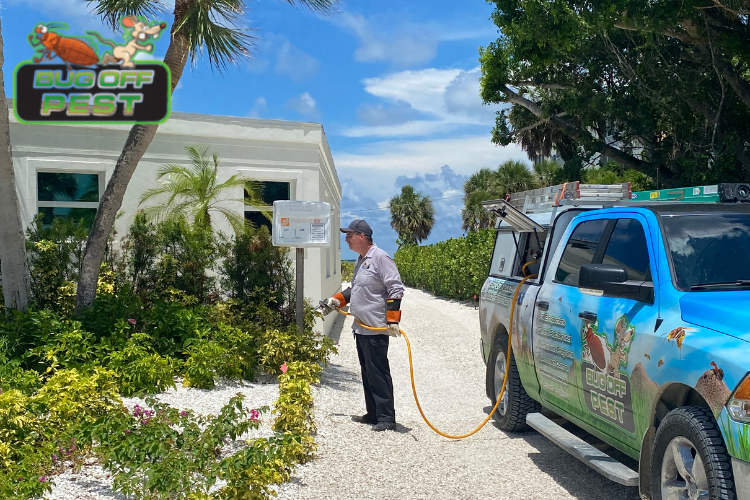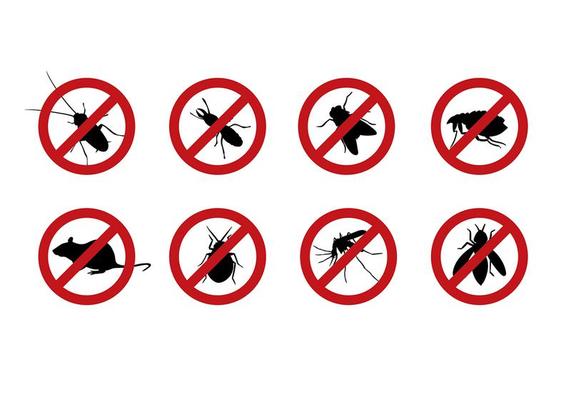Cost-effective and Reliable Exterminator in Port Charlotte for All Your Requirements
Find Out About the most up to date Advancements in Bug Control and Just How to Apply Reliable Therapy Solutions
In current years, the field of bug control has observed significant innovations, driven by the requirement for reliable and sustainable treatment remedies. Ingenious strategies such as Integrated Insect Administration (IPM) incorporate environmentally friendly techniques with innovative innovation, improving both efficiency and environmental duty.
Eco-Friendly Parasite Control Options
Over the last few years, the need for eco-friendly parasite control options has surged as house owners and companies alike seek sustainable choices to traditional chemical treatments. This change is driven by growing ecological awareness and a wish to decrease the wellness dangers connected with artificial chemicals.

Environment-friendly bug control methods incorporate a series of techniques that focus on the usage of all-natural compounds and techniques. Integrated Bug Administration (IPM) is one such method, incorporating biological, cultural, and mechanical strategies to manage bug populations while decreasing dependence on chemicals (Wildlife removal services). This all natural method stresses avoidance through habitat adjustment and the intro of natural predators, thus fostering a balanced community
One more preferred option is using herb chemicals stemmed from plants, which often tend to be much less harmful to non-target microorganisms. Products like neem oil and diatomaceous planet have actually acquired traction for their effectiveness in controlling bugs while posing very little risks to human wellness and the setting.
Additionally, exemption methods, such as sealing access points and preserving tidiness, play a crucial function in environmentally friendly insect administration. By taking on these sustainable practices, people and services can properly handle bugs while advertising a much healthier planet for future generations.
Smart Technology in Insect Management
Development is reshaping the landscape of insect monitoring, with clever technology emerging as a pivotal pressure in improving performance and performance - Wildlife removal services. The combination of Internet of Points (IoT) devices, fabricated knowledge (AI), and data analytics is revolutionizing exactly how insect control specialists come close to invasions
Smart traps furnished with sensing units can discover parasite task in real-time, sending out instant notifies to operators. This enables prompt actions, lessening damage and reducing the demand for considerable therapies. Furthermore, AI algorithms assess historic data to forecast bug habits, enabling aggressive interventions based on ecological conditions and infestation patterns.
Drones and computerized cars are also playing a substantial function in pest monitoring, offering aerial analyses of big locations, determining hotspots, and even dispersing targeted treatments. These modern technologies not only simplify procedures but additionally boost safety by restricting human direct exposure to potentially hazardous chemicals.
In addition, mobile applications equip customers to keep track of parasite activity and accessibility professional advice, promoting a joint method to pest monitoring. In general, the fostering of smart innovation is setting a new criterion in bug control, emphasizing data-driven decisions and lasting techniques that eventually profit both home owners and professionals alike.
Integrated Insect Monitoring Strategies
Integrated Parasite Monitoring (IPM) employs an alternative strategy to pest control, incorporating various methods to properly manage insect populations while lessening threats to human wellness and the environment. IPM revolves around comprehending the pest life process, their all-natural adversaries, and the ecosystem in which they thrive.
One of the fundamental elements of IPM is checking pest populaces through regular evaluations and information collection. This enables for the recognition of parasite limits, establishing when treatment is essential. Social techniques, such as plant hygiene, environment, and turning adjustment, are crucial in lowering bug frequency and advertising plant health and wellness.
Mechanical controls, including obstacles and catches, are likewise important in IPM. These methods can physically get rid of or prevent bugs without using chemicals. When necessary, the judicious application of chemical controls is used, concentrating on targeted treatments that minimize ecological effect.
Education and cooperation amongst stakeholders, including farmers, parasite control experts, and the community, are essential for the effective application of IPM strategies. By focusing on sustainable practices, IPM not just addresses pest issues yet additionally promotes a much healthier ecological community.
Biological Control Techniques
Various organic control approaches are increasingly identified for their efficiency in taking care of bug populations while advertising ecological balance. These strategies harness natural killers, parasites, and virus to decrease pest numbers without counting on synthetic chemicals. For example, the introduction of ladybugs can successfully control aphid populaces, while nematodes target soil-dwelling pest larvae.
Furthermore, the usage of microbial pesticides, such as Bacillus thuringiensis (Bt), supplies an eco friendly option for taking care of caterpillar insects. These items specifically target pest types, minimizing damage to beneficial bugs and pollinators. Furthermore, conservation organic control stresses enhancing habitats for all-natural opponents, such as birds and advantageous bugs, thereby motivating their visibility in agricultural systems.
Research continues to expose ingenious techniques within this area, such as the usage of scents to disrupt pest mating patterns or the development of biocontrol agents through genetic modification. Executing these techniques can cause lasting bug monitoring techniques that minimize the dependence on chemical treatments, inevitably cultivating much healthier communities. As understanding of these methods expands, how can pests be controlled they are ending up being indispensable parts of incorporated parasite monitoring (IPM) approaches, offering a balance in between reliable pest control and ecological stewardship.
Do It Yourself Parasite Control Solutions
As home owners look for efficient ways to tackle parasite concerns, DIY insect control solutions have actually obtained appeal for their availability and cost-effectiveness. These techniques empower people to attend to invasions making use of conveniently available materials and strategies, commonly without the requirement for professional treatment.

Furthermore, preserving appropriate sanitation and normal examinations can stop insect entrance and nesting browse around this web-site (Wildlife removal services). Straightforward practices, such as securing fractures, removing food sources, and decluttering, can considerably lessen insect populations. Catches, both homemade and commercially available, can additionally provide effective services for surveillance and managing specific bugs like rodents or pests

Final Thought
The combination of eco-friendly pest control alternatives, smart modern technology, and cutting-edge administration techniques offers a comprehensive strategy to reliable insect monitoring. By accepting Integrated Parasite Monitoring (IPM) and making use of biological control techniques, alongside DIY solutions, liable and lasting pest control can be achieved.
Green parasite control methods encompass a variety of methods that focus on the usage of all-natural materials and practices. Integrated Pest Administration (IPM) is one such technique, incorporating organic, cultural, and mechanical strategies to handle bug populaces while lowering reliance on chemicals. As awareness of these methods expands, they are coming to be essential parts of incorporated pest management (IPM) strategies, offering an equilibrium in between reliable parasite control and ecological stewardship.
The more tips here assimilation of eco-friendly pest control alternatives, clever modern technology, and cutting-edge administration methods provides a detailed technique to efficient pest management. By welcoming Integrated Parasite Monitoring (IPM) and using biological control approaches, along with DIY services, accountable and sustainable parasite control can be accomplished.